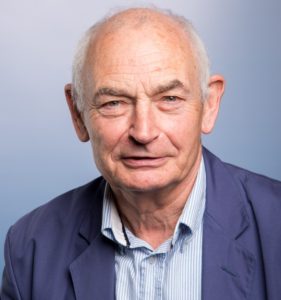Keynote Speaker

Dr Mwelecele Ntuli Malecela is Director of the Department of Control of Neglected Tropical Diseases of the World Health Organization (WHO) in Geneva, Switzerland.
Until her appointment in December 2018, she was Director in the Office of the Regional Director, WHO Regional Office for Africa in Brazzaville, Congo where she was responsible for providing policy, managerial and diplomatic advice to the Regional Director.
Prior to joining WHO in April 2017, Dr Malecela served as the Director General of the National Institute for Medical Research, United Republic of Tanzania – the first woman to occupy this post – and as founding Director of the Tanzania Lymphatic Filariasis Elimination Programme. She worked for 30 years at the National Institute for Medical Research starting as a junior scientist in the field of lymphatic filariasis, later focusing on immuno-epidemiology of filarial infections and ran successful programmes for lymphatic filariasis patients.
Dr Malecela holds a BSc in Zoology from the University of Dar es Salaam and an Msc and PhD in Parasitology from the University of London (London School of Hygiene and Tropical Medicine). She specialized in filarial immunology, specifically on filarial immune evasion mechanisms.
She has served on a number of international committees including the Technical Advisory Group of the Global Program to Eliminate Lymphatic Filariasis, the Mectizan Expert Committee, the Trachoma Expert Committee and the advisory board of the Initiative on Public/Private Partnerships in Health (IPPPH). Dr Malecela also chaired the WHO Regional Programme Review Group for NTDs in Africa and was a member of WHO Strategic and Technical Advisory Committee for Neglected Tropical Diseases and the Medicine in Need Steering Committee on Innovation, Alliance and Translation Management (MITAM).
Dr Malecela has been involved in a number of philanthropic organizations and has authored several publications in peer reviewed journals.
Plenary Speaker

Professor David Molyneux is an Emeritus Professor in The Liverpool School of Tropical Medicine and in the University of Liverpool.
Professor Molyneux was Director of the Liverpool School of Tropical Medicine (1991-2000) and Professor of Biology and Dean of Science at Salford University from 1977-91. Professor Molyneux graduated (MA, PhD) from Cambridge University in parasitology. His research interests have been on tropical parasites and vectors and he become involved in parasitic and vector borne disease control programmes advising WHO on trypanosomiasis, onchocerciasis, lymphatic filariasis and malaria control. During his career he has supervised over 50 PhD and Masters students.
Professor Molyneux has extensive experience in Africa and the Middle East. He has published over 400 papers and reviews and contributions to books and a textbook on trypanosomes and leishmania. He acted as Editor of the Control of Human Parasitic Diseases-13 Chapters and 662 pages. He has acted as a consultant to many organisations including WHO, FAO, UNDP, CGIAR, the World Bank and the UK government (DFID) and has Chaired WHO Committees on Onchocerciasis, Tropical Diseases and Mosquitoes. He is a member of two International Commissions on Disease Eradication and served as Executive Secretary of the Global Alliance for the Elimination of Lymphatic Filariasis (from 2006-2010). He is an adviser to ARNTD.
His work has been recognized by the award of medals from the Royal Society of Tropical Medicine and Hygiene and the British Society for Parasitology- societies of which he has served President and was awarded the Kyelem Prize by COR NTD in 2017.
He was awarded a DSc from Salford University and is a Doctor of Science Honoris Causa of Georgetown University, Washington, DC and UHAS, Ghana and Honorary Fellow of Liverpool John Moores University, UK. He is an author on several recent publications on health policy and neglected tropical diseases (NTDs) in the Lancet, BMJ, New England Journal of Medicine and PLoS Medicine. He has been one of the key advocates in raising the profile of Neglected Diseases to the extent they are now one of the priorities of the World Health Organisation and a target of the UN Sustainable Development Goals.
For inquiries contact: info@incontd.org
